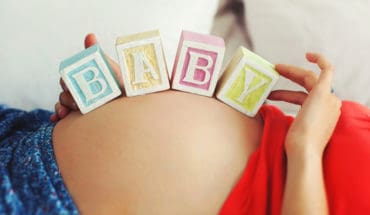Pre-term and low birthweight infants have fewer fractures in childhood than full-term and normal-weight newborns, according to a new a study from the University of Eastern Finland and Kuopio University Hospital.
The register-based cohort study from Finland utilised the nationwide Medical Birth Register, the Care Register for Health Care, and data provided by Statistics Finland. The analysis included data on one million children and nearly 100,000 fractures.
Children born very pre-term or with extremely low birthweight are known to be at risk of metabolic bone disease of prematurity, as the foetal accumulation of minerals occurs mainly in the third trimester of pregnancy. Some earlier smaller studies have also reported an increased risk of fractures in childhood in children born pre-term. Furthermore, an earlier study from Finland found that pre-term infants continue to have lower bone mineral density even in adulthood.
“With this in mind, we set out to examine whether pre-term and low birthweight babies have an increased risk of fractures in their childhood, when compared to full-term and normal birthweight babies,” Adjunct Professor Ilari Kuitunen of the University of Eastern Finland says.
The researchers found that pre-term and low birthweight infants had significantly fewer fractures in childhood than other newborns. The difference was particularly evident in children born before the 32nd week of pregnancy, who had 23% fewer fractures than in children born full-term. There were also fewer fractures in the group whose birthweight was less than 2,500 g, and especially in the group whose birthweight was less than 1,000 g.
“It can be concluded that the risk of fractures in childhood is explained by factors other than the effect of being pre-term on bones. However, we know that pre-term children are less likely to participate in sports, and they have less risk-taking behaviour even as adults than full-term children,” Kuitunen says.
According to the researchers, further research is needed on whether foetal growth disorder, i.e., abnormal growth in relation to weeks of pregnancy, is associated with fractures in early childhood, as this was not addressed in the present study.
The study was published in Journal of Bone and Mineral Research. The research group also included Professor Reijo Sund and Adjunct Professor Professor Ulla Sankilampi.
The article is available (open access) at: https://asbmr.onlinelibrary.wiley.com/doi/10.1002/jbmr.4833
https://news.cision.com/university-of-eastern-finland/r/pre-term-and-low-birthweight-newborns-have-fewer-fractures-in-childhood-than-others,c3781691
- Gut microbiome could delay onset of type 1 diabetes - 3rd April 2025
- The da Vinci 5 Robot Is Set To Transform Bariatric Care: - 31st March 2025
- Beyond money: the hidden drivers fuelling child food insecurity - 31st March 2025






